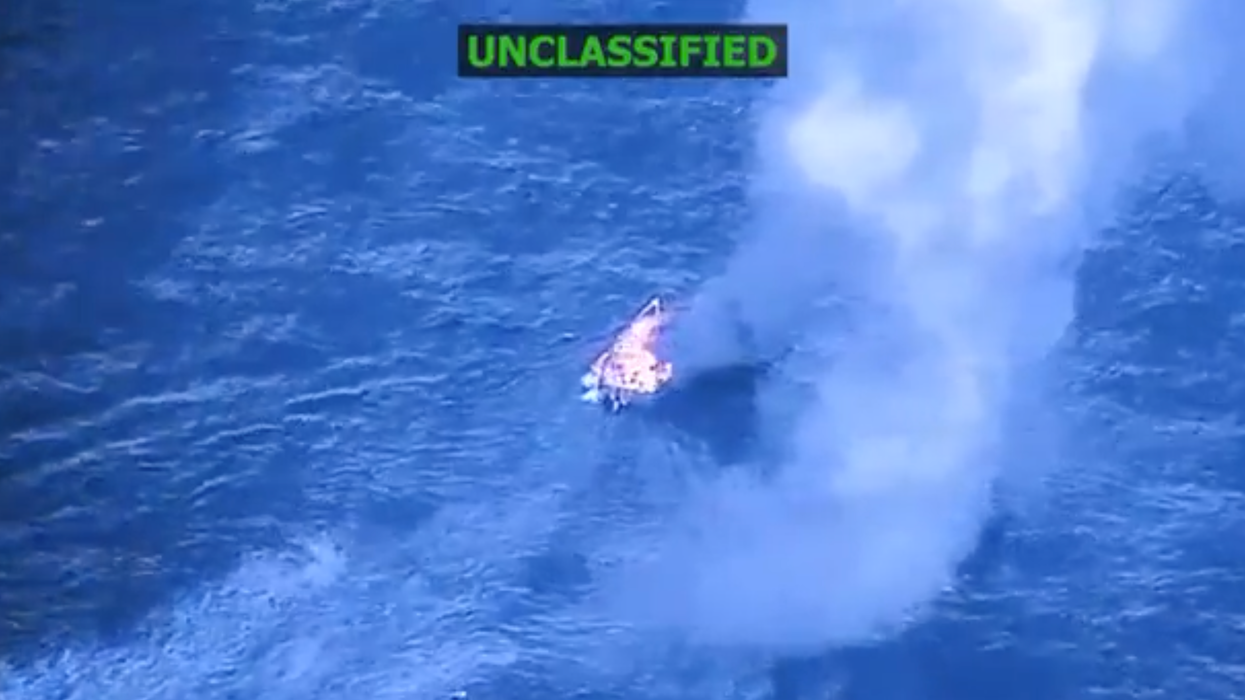November, 27 2012, 02:02pm EDT

Coalition Urges President to Veto NDAA If It Extends Guantanamo Transfer Restrictions
Human Rights, Religious, and Civil Liberties Groups Ask Obama to Keep His Promise to Close Guantánamo Prison
WASHINGTON
A broad coalition of human rights, religious, and civil liberties groups wrote to President Obama today to urge him to veto the National Defense Authorization Act (NDAA) if it impedes the closing of the Guantanamo prison by extending restrictions on transferring detainees from the facility.
The current transfer restrictions are due to expire on March 27, but the pending NDAA bills in Congress would extend the restrictions for the remainder of the current fiscal year, which ends Sept. 30. The letter explains that, if the restrictions are extended, "the prospects for Guantanamo being closed during your presidency will be severely diminished, if not gone altogether." The letter urges Obama to "make the successful closing of the Guantanamo prison an important part of your historic legacy."
The Senate will likely consider the NDAA as soon as this week. At the same time, House and Senate negotiators have been meeting informally for several weeks to draft a final bill. Congress is likely to send a final NDAA to Obama during the current lame-duck session.
A pdf version of the letter is available here: https://www.aclu.org/accountability-torture/letter-president-obama-closi.... The full text of the letter follows:
Re: VETO the National Defense Authorization Act, If It Extends Restrictions on Transferring Detainees Out of the Guantanamo Prison
Dear President Obama:
The undersigned human rights, religious, and civil liberties groups strongly urge you to veto the National Defense Authorization Act for Fiscal Year 2013--if it impedes your ability to close Guantanamo, by restricting the Executive Branch's authority to transfer detainees for repatriation or resettlement in foreign countries or for prosecution in federal criminal court. The House of Representatives passed a version of the NDAA that restricts all transfers out of Guantanamo for the full fiscal year, while the Senate version of the bill restricts transfers overseas. We urge you to veto the NDAA if any of these restrictions are included in the final bill sent to you by Congress.
Your commitment to close the Guantanamo prison was a hallmark of your 2008 campaign and a signal to everyone, both across America and around the globe, of a renewed commitment to the rule of law. Your executive order, on your second full day as president, directing the government to close the prison should have heralded the end of the prison, but instead triggered a long series of failures and obstacles to its closure. There are still 166 detainees left at Guantanamo, and the promise of closing the prison remains unfulfilled.
We appreciate that you publicly renewed your commitment to closing Guantanamo in public comments last month, and we strongly believe that you can accomplish this objective during your second term. You can still make the successful closing of the Guantanamo prison an important part of your historic legacy.
However, if the NDAA is signed with any transfer restrictions in it, the prospects for Guantanamo being closed during your presidency will be severely diminished, if not gone altogether. The current statutory restrictions on transfer expire on March 27, 2013. Those restrictions--which have been in place for nearly two years with zero detainees being certified for transfer overseas and zero detainees transferred to the United States for prosecution--are functionally similar to the restrictions in the NDAA bills pending in Congress. If extended for the entire fiscal year, then nearly a year of your second term could be lost, and the political capital required to start closing it later in your next term will be even greater.
Now is the time to end the statutory restrictions on closing Guantanamo, by vetoing the NDAA if it extends them. When signing earlier versions of these restrictions into law, you stated, "my Administration will work with the Congress to seek repeal of these restrictions, will seek to mitigate their effects, and will oppose any attempt to extend or expand them in the future." The restrictions have proven unworkable, and should not be extended for yet another year.
There is broad support among national security and foreign policy leaders for closing Guantanamo. Your own national security and foreign policy leadership team shares your commitment to closing Guantanamo. The list of leaders who support closing the Guantanamo prison is long, and crosses party lines, including: former President George W. Bush, former Secretary of State Condoleezza Rice, former Secretary of State Colin Powell, former Secretary of Defense Robert Gates, former National Security Advisor James Jones, General Charles C. Krulak (ret.) former Commandant of the Marine Corps, General Joseph P. Hoar (ret.), former CETCOM commander, and Brigadier General Michael Lehnert (ret.), who set up the Guantanamo prison, and 25 retired admirals and generals. Closing Guantanamo is good human rights policy and good national security policy.
We realize that there is a long tradition of the NDAA being enacted annually. However, an annual NDAA is not required for the Department of Defense to carry out its functions. The NDAA does not fund the Department of Defense, and all of its provisions can be either implemented by agency action or enacted as part of other legislation. Four of your five immediate predecessors--Presidents Carter, Reagan, Clinton, and George W. Bush--each vetoed an NDAA. Restrictions impeding the closing of the Guantanamo prison clearly warrant a veto by you.
We believe that you will be far more likely to succeed in fulfilling your commitment to closing the Guantanamo prison if the transfer restrictions are allowed to expire on March 27. We strongly urge you to veto the NDAA, if it includes any extension of the restrictions on transferring detainees out of Guantanamo for either repatriation or resettlement overseas or prosecution in the United States. Thank you for your attention to this request.
Sincerely,
American Civil Liberties Union
American Friends Service Committee
Appeal for Justice
Bill of Rights Defense Committee
Brennan Center for Justice
Center for Constitutional Rights
Center for International Policy
Center for Victims of Torture
Commission on Social Action of Reform Judaism
Council on American-Islamic Relations
Defending Dissent Foundation
Disciples Justice Action Network
Friends Committee on National Legislation
Human Rights Watch
International Justice Network
Japanese American Citizens League
Maryknoll Office for Global Concerns
National Association of Criminal Defense Lawyers
National Religious Campaign Against Torture
Peace Action
Presbyterian Church (USA) Office of Public Witness
Physicians for Human Rights
Psychologists for Social Responsibility
Rabbis for Human Rights - North America
United Church of Christ Justice and Witness Ministries
United Methodist Church, General Board of Church and Society
Unitarian Universalist Association
Win Without War
The American Civil Liberties Union was founded in 1920 and is our nation's guardian of liberty. The ACLU works in the courts, legislatures and communities to defend and preserve the individual rights and liberties guaranteed to all people in this country by the Constitution and laws of the United States.
(212) 549-2666LATEST NEWS
30th Strike in Trump's High-Seas Kill Spree Claims 2 More Lives
At least 107 people have been killed in US bombings of boats that the Trump administration claims—without evidence—were involved in narco-trafficking in the Caribbean Sea and Pacific Ocean.
Dec 29, 2025
The US military said Monday that two alleged drug smugglers were killed in the bombing of another boat in the eastern Pacific Ocean, but—as has been the case throughout 30 such strikes—offered no verifiable evidence to support its claim.
US Southern Command (SOUTHCOM) said on X that, on orders from Defense Secretary Pete Hegseth, "Joint Task Force Southern Spear conducted a lethal kinetic strike on a vessel operated by Designated Terrorist Organizations in international waters."
"Intelligence confirmed the vessel was transiting along known narco-trafficking routes in the eastern Pacific and was engaged in narco-trafficking operations," SOUTHCOM added. "Two male narco-terrorists were killed. No US military forces were harmed."
According to the Trump administration's figures, at least 107 people have been killed in 30 boat strikes since early September. The administration has tried to justify the strikes to Congress by claiming that the US is in an “armed conflict” with drug cartels, while legal scholars and Democratic US lawmakers counter that the bombings are likely war crimes.
War powers resolutions aimed at reining in President Donald Trump’s ability to extrajudicially execute alleged drug traffickers in or near Venezuela failed to pass the Senate in October and the House earlier this month.
Monday's strike came amid Trump's escalating aggression against Venezuela, including the deployment of warships and thousands of US troops to the region, authorization of covert CIA operations targeting the country's socialist government, and threats to launch ground attacks.
Trump claimed Monday without providing evidence that US forces destroyed a "big facility" in an unspecified country where narco-traffickers' "ships come from."
Keep ReadingShow Less
Trump Bemoans Not Winning Nobel Peace Prize During Netanyahu Hot Mic
The self-described "most anti-war president in history" has ordered the bombing of at least nine nations—more than any US leader in history—and has been indispensable to Israel's genocide in Gaza.
Dec 29, 2025
President Donald Trump—who has bombed more countries than any US leader in history—once again lamented what he considers his snub for the Nobel Peace Prize during a Monday meeting with fugitive Israeli Prime Minister Benjamin Netanyahu.
In an apparent hot mic moment, Trump, seemingly unaware that there were reporters in the room, speaks to Netanyahu and other Israeli and US officials gathered at the president's Mar-a-Lago club in Florida about the "35 years of fighting" between two unspecified countries that he "stopped."
"Do I get credit for it? No," Trump says, adding before being interrupted by Netanyahu, "They gave the Nob..."
As something of a consolation prize, Netanyahu said Monday that he's awarding Trump with the Israel Prize, that nation's highest cultural honor. Trump will be the first foreign leader to receive the award.
Football's global governing body also gave Trump its inaugural—and widely derided—FIFA Peace Prize earlier this month in recognition of the administration's role in brokering an end to international conflicts.
"I did eight of them," Trump said during the hot mic—likely referring to the number of wars he falsely claims to have ended—before seeming to notice the journalists and changing the subject.
Trump ranting to Netanyahu on a hot mic: "Do I get credit for it? No. They gave the Nob-- I did 8 of them. How about India and Pakistan? So I did 8 of them. And then I'll tell you the rest of it."
[image or embed]
— Aaron Rupar (@atrupar.com) December 29, 2025 at 10:57 AM
Trump did nine of them—as in the number of countries he's bombed, breaking former President Barack Obama's record of seven. Over the course of his two terms, Trump has ordered the bombing of Afghanistan, Iran, Iraq, Libya, Nigeria, Pakistan, Somalia, Syria, and Yemen, as well as boats allegedly transporting drugs in the Caribbean Sea and Pacific Ocean.
Thousands of civilians have been killed or wounded during these campaigns, according to experts.
Trump has recently deployed warships and thousands of US troops near Venezuela, which could become the next country attacked by a the self-described "the most anti-war president in history."
The US president has also backed Israel's genocidal war on Gaza, which has left more than 250,000 Palestinians dead, maimed, or missing, and around 2 million others forcibly displaced, starved, or sickened. Israel's conduct in the war is the subject of an ongoing International Court of Justice genocide case filed by South Africa.
Meanwhile, Netanyahu and his former defense minister Yoav Gallant are wanted by the International Criminal Court for alleged war crimes and crimes against humanity in Gaza, including murder and forced starvation.
“He is a wartime prime minister. He’s done a phenomenal job," Trump said while standing with Netanyahu later on Monday. "He’s taken Israel through a very dangerous period of trauma."
He is also accused of prolonging the Gaza war to forestall a reckoning in his domestic corruption trial, in which Trump has intervened by requesting a pardon.
“Israel, with other people, might not exist right now," Trump added. "If you had the wrong prime minister, Israel right now would not exist.”
Keep ReadingShow Less
New State Laws Aim to Protect Environment, Consumers as Trump Wages All-Out War on Climate
"The gridlock and partisanship we see in Washington, DC can be dispiriting. But history shows that states can build momentum that eventually leads to change at the federal level."
Dec 29, 2025
Even as President Donald Trump and his administration have been ripping up environmental and consumer protection regulations, a number of state laws are set to take effect next year that could at least mitigate some of the damage.
A Monday statement from Environment America and the Public Interest Network highlighted a number of new laws aimed at curbing corporate polluters and enhancing consumer welfare.
First, the groups highlighted "Right to Repair" laws set to take effect in Washington, Nevada, Oregon, and Colorado, which give people the right to repair their own appliances and electronics without burdensome costs or barriers.
The groups lavished particular praise on Colorado's "Right to Repair" laws that they said provide "the broadest repair protections in the country," with new regulations that will give businesses in the state "access to what they and independent repair providers need to fix their electronics themselves."
Illinois, meanwhile, will fully phase out the sale of fluorescent lightbulbs, which will be replaced by energy-efficient LED bulbs. The groups estimate that eliminating the fluorescent bulbs will collectively save Illinois households more than $1.5 billion on their utility bills by 2050, while also reducing energy waste and mercury pollution.
Illinois also drew praise for enacting a ban on polystyrene foam foodware that will take effect on January 1.
The groups also highlighted the work being done in Oregon to protect consumers with legislation mandating price transparency to eliminate surprise junk fees on purchases; prohibiting ambulance companies from socking out-of-network patients with massive fees for rides to nearby hospitals; and placing new restrictions on the ability of medical debt to negatively impact a person's credit score.
California also got a mention in the groups' release for closing a loophole that allowed supermarkets to continue using plastic bags and for creating a new privacy tool for consumers allowing them to request that online data brokers delete all of the personal information they have gathered on them over the years.
Emily Rusch, vice president and senior director of state offices for the Public Interest Network, contrasted the action being taken in the states to protect consumers and the environment with a lack of action being done at the federal level.
"The gridlock and partisanship we see in Washington, DC can be dispiriting," said Rusch. "But history shows that states can build momentum that eventually leads to change at the federal level. As we build on this progress in 2026, we look forward to working with anyone—Republican, Democrat, or independent—with whom we can find common ground."
Keep ReadingShow Less
Most Popular


